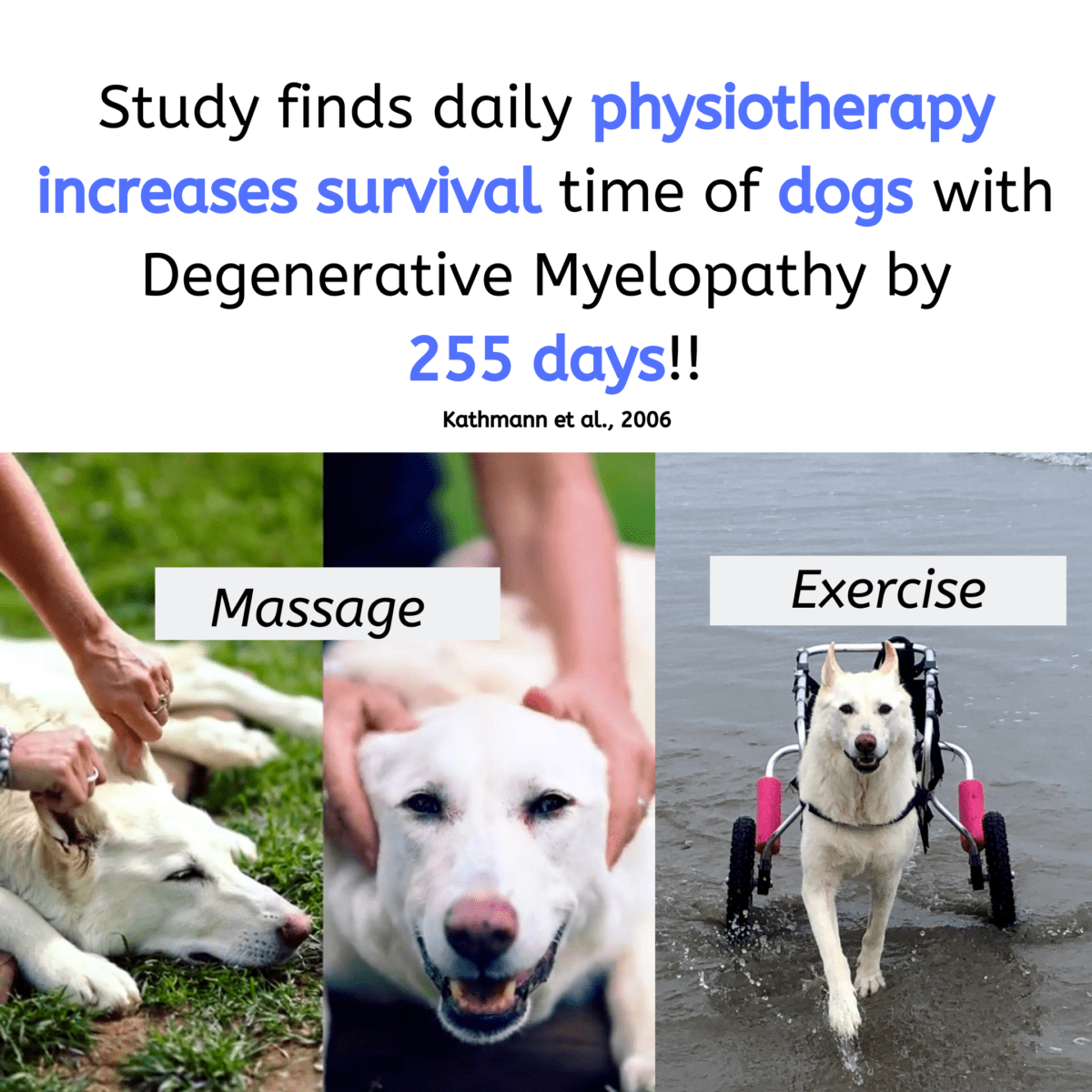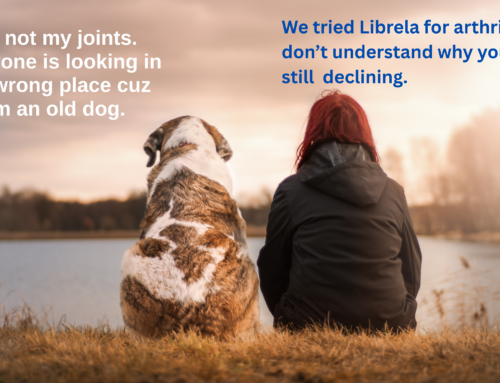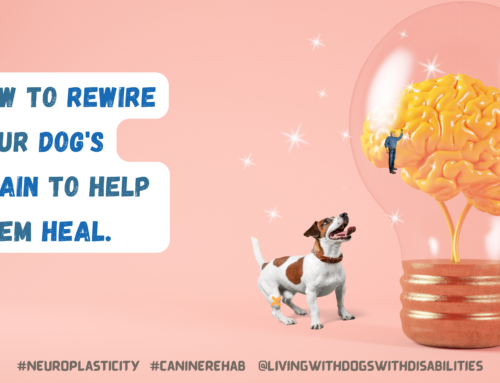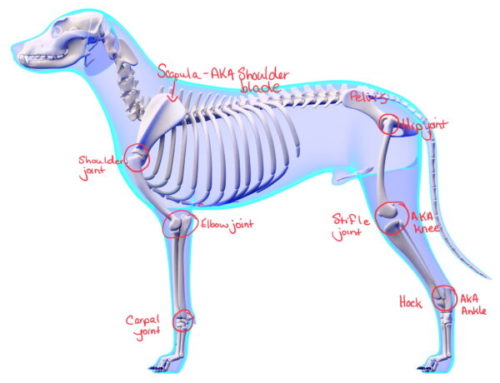In the human population physiotherapy is a well known therapy for multiple sclerosis (MS) a progressive neurological disease that has some similarities to DM. Physiotherapy has been proven to improve mood, help with mobility/movement, and enhance a sense of wellbeing. (Wiles rt al., 2001). Amyotrophic lateral sclerosis (ALS) is another progressive neurological disease that is very similar to DM. While ALS is not curable, it is considered “treatable”. A treatment plan for this disease is a collaboration across health professions and physiotherapy plays an integral role to maximize function and minimize symptoms at various stages of the disease (Dal Bello-Haas, Vanina, 2018).
So how does this related to our furry friends…..? If physiotherapy works for people can it work for dogs? In short, YES!
Daily physiotherapy can help! A 2006 study found that DAILY PHYSIOTHERAPY can EXTEND a DOG’S LIFE up to 255 days when DM was suspected. The study described the following components of physiotherapy:
*active exercise
*passive exercise (passive range of motion – PROM)
*massage
*hydrotherapy (deep water walking, underwater treadmill, etc)
*paw protection (booties on affected limbs)
Quick side note: While physiotherapy is a term we use for people and canine rehabilitation for dogs, this study did refer to the intervention as “physiotherapy” (Kathmann, 2006).
A different study added NUTRITION (unprocessed foods and supplements), in addition to exercise, to slow the progression of the disease. Furthermore acupuncture is another therapy that has been effective in “treating” DM (Pfafman, 2017).
So what does this all mean? It means EXERCISE, NUTRITION, HANDS ON THERAPY and INTEGRATIVE PRACTICES can enable your dog to be with you longer and have a good life. It also means that a COLLABORATIVE and INTEGRATIVE approach has been SHOWN in RESEARCH to ENHANCE YOUR DOG’S OVERALL WELLBEING and SIGNIFICANTLY SLOW THE PROGRESSION of DM. Physiotherapists and veterinarians can work together to help you help your dog. There are many things a physiotherapist/canine rehab therapist, trained in canine rehabilitation can TEACH YOU to do AT HOME as well.
This information is meant to help you learn a little bit more about how you can help your dog. If you suspect your dog has DM, I encourage you to work with trained professionals to navigate this disease and help you help your dog along the way.
Thank you so much for reading this. I hope it was helpful. If you are looking for more assistance please PM us or contact us online at www.upwarddogrehab.com
REFERENCES
https://ivcjournal.com/integrative-management-degenerative…/
https://onlinelibrary.wiley.com/…/j.1939-1676.2006.tb01807.x
http://www.iavrpt.org/documents/2010_proceedings/coates-canine_degenerativemyelopathy.pdf





